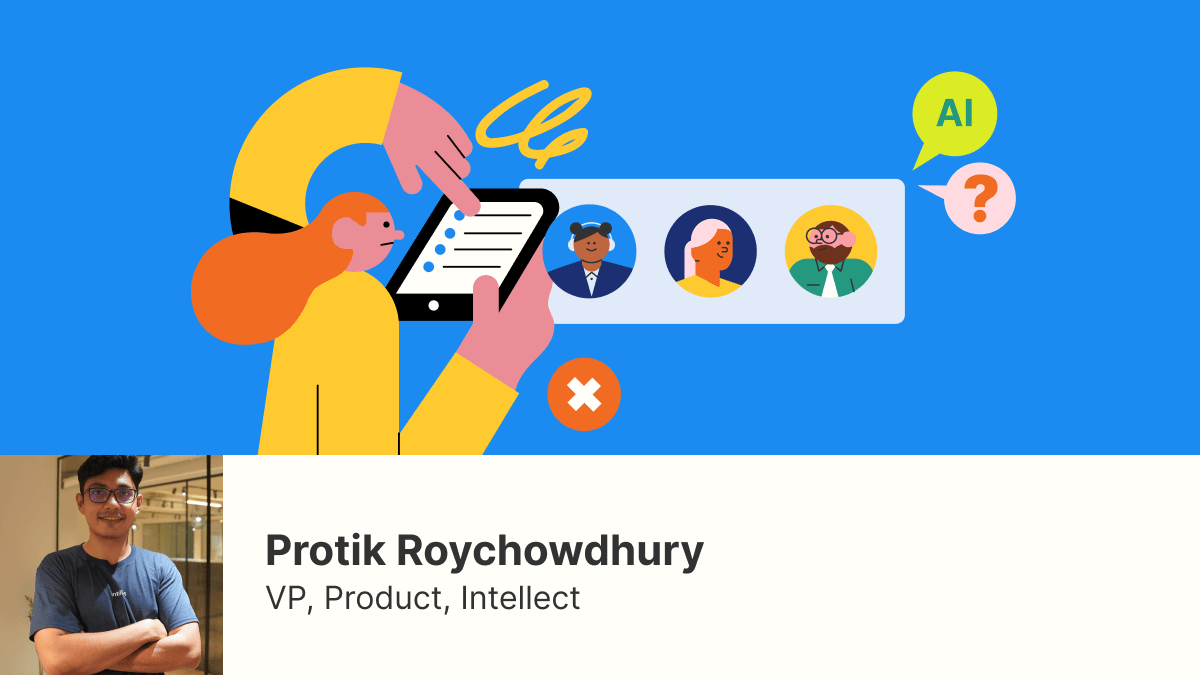When people think about artificial intelligence (AI) and mental health, the first thing that often comes to mind is automation—faster diagnoses, smarter scheduling, or predictive triaging. And while automation is powerful, it’s not enough when it comes to mental health. Here, we’re not just solving logistical problems, we’re helping people navigate the complex, deeply personal, and ever-changing experience of being human. How could that ever be straightforward?
HR leaders know this challenge well. You’ve seen wellness programmes fall short when they treat employees like checkboxes rather than individuals. That’s why, at Intellect, we’re reimagining mental health support with AI that’s as human as it is high-tech, designed to meet your workforce where they are, with care that feels personal, proactive and deeply relevant.
Why automation falls short
Even with diagnoses, mental health conditions do not follow neat clinical pathways. For starters, two patients with similar symptoms might need completely different types of support: one might thrive with structured cognitive therapy, while another might need empathetic, human-first coaching.
Furthermore, emotional needs evolve. Someone who needs anxiety support today might, in a few months, need tools for grief, confidence building, or work-life balance. Static intake forms and rigid programmes simply can’t keep up.
All that to say, no two individuals are the same, and one’s mental health journey is always in flux. That’s why automated solutions ranging from symptom checkers to chatbots might often fall short of delivering treatment outcomes. People need to feel seen, heard, and understood, not treated like entries in a database. So if AI and mental health are going to be transformative, it must move beyond efficiency. It must become personal.

Personalisation at scale is the real frontier
Instead of delivering the same flow to all users, AI-driven mental health platforms need to adapt to each and every one of them. That means personalising care journeys based on their individual profile and evolving needs.
At Intellect, where I lead product and design, we’re launching AI capabilities that promise to redefine workplace mental health support.
Here’s how we’re building for personalisation, with HR and employees in mind:
1. Behavioural pattern detection
Your sleep tracker reminds you to catch up on shuteye, and your fitness tracker (politely) calls you out on being a couch potato all week. What if you were notified of your mental health downticks?
At Intellect, we designed our systems to detect early signs of burnout, disengagement and shifts in mood often before a user even reports them. This allows individuals to stay on top of their emotional and psychological wellbeing and seek early interventions, which results in better mental health outcomes.
Employers benefit from this, too. Each month, our clients receive aggregated insights highlighting key trends from the past month, along with actionable next steps. When early signs of burnout are detected, we alert organisations anonymously and recommend targeted interventions that can make a difference.
2. Personalised care matching
Any general practitioner might do when you have a common cold, but the same cannot be said in mental health, where the therapeutic alliance is the single most important factor in determining treatment outcomes.
Instead of arbitrarily matching users to the next available therapist, Intellect’s AI now recommends coaches, clinicians and programmes by considering factors like cultural nuances, previous outcomes, and even communication styles.
This has super-charged outcomes for our users by over 29%, resulting in a better match rate, a larger number of sessions completed, and lower scores on the Patient Health Questionnaire-4 (PHQ-4) across the board after 2+ sessions.
3. Dynamic recommendations
From guided meditations to journaling prompts, mental health resources have never been more accessible. But where to begin?
To point users in the right direction, Intellect studies their in-app activity, from subtle user signals to session history. This information then guides our recommendations.

For example, as soon as a few check-ins have been completed, users start receiving tailored exercises—not a generic library. If their stress levels trend upward, we may recommend specific coping techniques and nudge them towards live support.
Thanks to our Next Best Action modules, engagement rates and self-reported outcomes have increased by close to 300% over the baseline.
The result of personalising AI and mental health? Higher user satisfaction, faster access to the right support, and greater personal agency in navigating one’s mental health journey.
The future of AI and mental health
Imagine an AI companion built just for you; an aide who supports you every step of the way alongside licensed mental health professionals. A companion that doesn’t merely respond in moments of crisis, but proactively alerts you to unhelpful patterns and delivers interventions tailored specifically to your needs.
Mental health support shouldn’t be reserved for moments of breakdown, nor should it follow a one-size-fits-all model. It should be an everyday resource that meets you wherever you are, in a high-tech yet deeply human-centered way.
If we get it right, AI won’t just automate mental health care. It will empower millions to build healthier, more resilient lives—with dignity, empathy, and respect.








